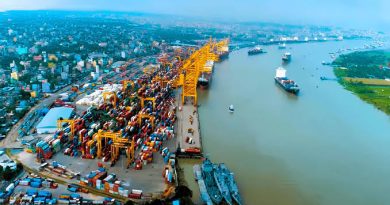Just as dreams are painted in vibrant colors, so too do budgets carry shades of aspiration. Yet, when dreams are clouded by harsh realities, the language of the budget becomes heavy with contradiction. The FY2025–26 budget, approved in the Advisory Council meeting, was titled “Commitment to Building an Inclusive and Sustainable Economy.” However, the structural ambiguity and internal tension visible from the proposal stage have lingered in the final version.
Though the budget speaks of sustainable development, it increases the tax burden—especially for the middle class and ordinary citizens.
Economic Adviser Dr. Salehuddin Ahmed emphasized fiscal discipline as a central goal of the budget, painting a vision of stability built upon lessons from past failures. However, while the rhetoric is mature, the policies often appear disconnected from the realities on the ground. Attempting to contain long-standing fiscal deficits, the budget seems to impose structural pressure on the economy.
The total budget size for FY2025–26 stands at Tk 7.97 trillion, which is about Tk 70 billion lower than the previous year’s original budget—making it somewhat contractionary. To appear citizen-friendly, the government has increased various allowances. Both the number of beneficiaries and per capita allocations have seen some rise, aiming to reduce inequality and improve quality of life.
A notable increase has been made in the allocation for the families of those martyred or injured in the July Uprising, rising from Tk 2.33 billion in FY2024–25 to Tk 4.05 billion in the upcoming fiscal year. The emphasis on “July” in the budget—through foundations, departments, and museums—appears to carry symbolic weight.
Although inflation peaked at 11.66% in July 2024, the budget claims it has recently cooled to around 9%. To curb inflation, Bangladesh Bank adopted a tight monetary policy, declaring in January that this stance would continue until inflation drops to 6%.
Yet this policy is undermined by conflicting actions. The government issued treasury bonds to pay off arrears in fertilizer and electricity subsidies, while the central bank lent Tk 220 billion in emergency funds to seven struggling banks, including five Islamic ones, in December 2024. Meanwhile, BB continued injecting liquidity through promissory notes. These same banks are major contributors to the alarming rise in non-performing loans.
Default loan rates jumped from 10.11% in 2023 to 20.20% at the end of 2024.
Despite initial assurances against printing money to aid weak banks, reality suggests otherwise. Yet, the budget lacks any long-term structural plan to address such crises.
As usual, the budget aims to raise revenue through expanded taxation. While the tax-free income threshold has been raised, the removal of the 5% tax slab increases pressure on the middle class. The minimum tax has been set at Tk 5,000 across the board. For example:
- Someone earning Tk 400,000 outside city corporations will now pay Tk 5,000 in taxes (previously Tk 3,000).
- A person earning Tk 700,000 will now pay about Tk 37,000 instead of Tk 30,000.
E-Commerce: A Sector Under Pressure
Another major change is the increase in VAT on online sales commissions from 5% to 15%. While this may seem like a simple cost hike, the implications are more nuanced. In the post-Covid reality, e-commerce has become not only a convenience but also a livelihood for many—students funding their education, unemployed individuals earning with dignity.
This rise in source tax doesn’t just inflate prices—it risks stifling a growing digital economy that now exceeds Tk 20 billion in market size and involves over 10 million people, directly or indirectly.
Dr. Salehuddin Ahmed, drawing on his legacy of financial reform and implementation of Basel II during his tenure at Bangladesh Bank, has structured this budget with good governance in mind. The bold decision to restructure the National Board of Revenue (NBR) may have been influenced by the IMF or World Bank—but also shows institutional foresight.
Despite the rhetoric of an inclusive economy, the tax structure’s rigidity, obstacles to online trade, and questionable inflation control reflect a disconnect from the daily struggles of citizens. Some progress is evident in social safety net programs and gender equality initiatives, which deserve praise.
In the end, this budget raises a critical question:
Are we merely managing numbers, or truly advancing toward a humane, inclusive, and sustainable economic framework?
Writer: Ashfaq Safal –Blogger and IT Professional






